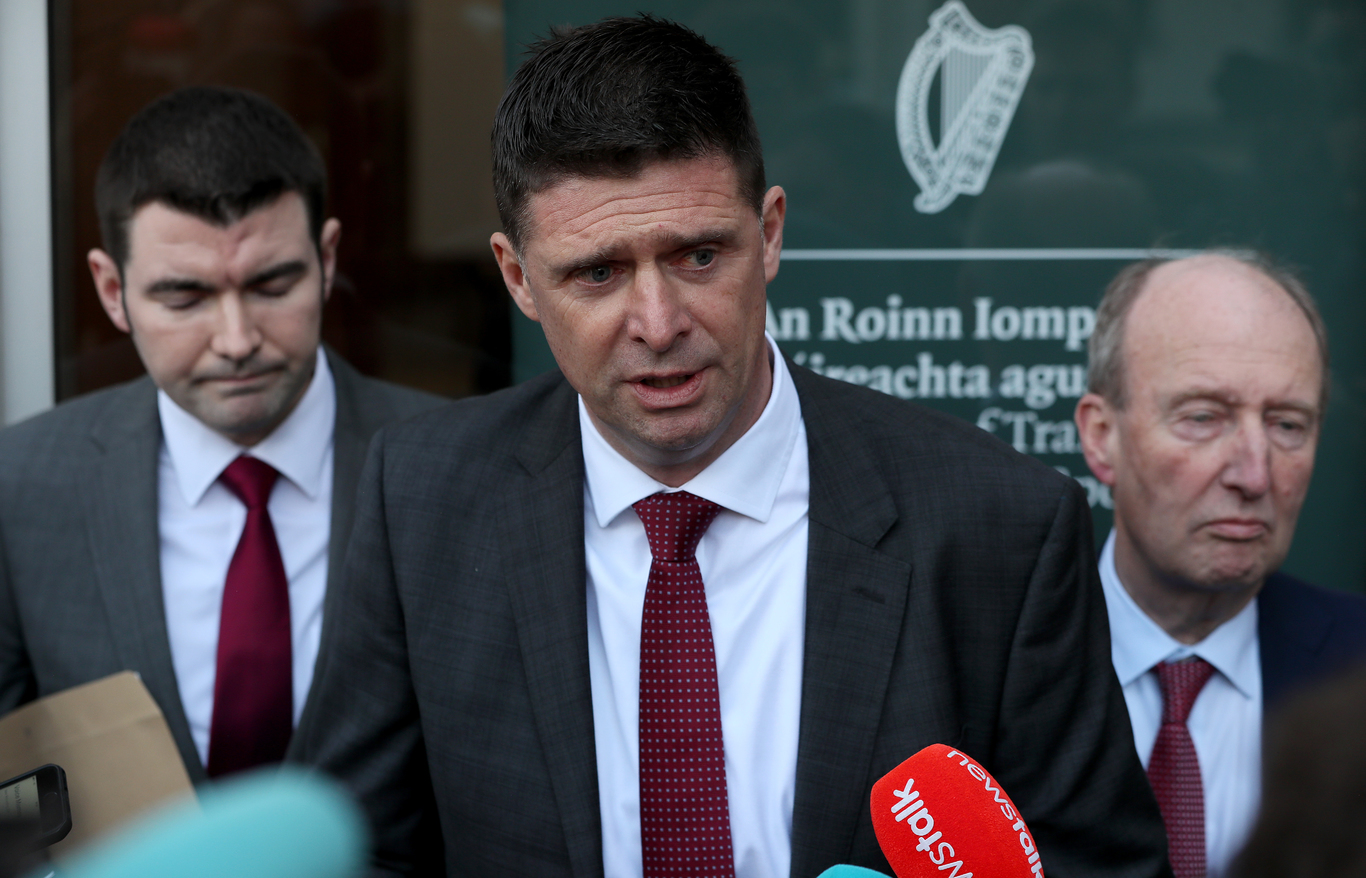Right messaging, wrong platform - the tricky balancing act of creating the right impression
While Niall Quinn was a good Late Late Show guest, it might not have been the best venue.
AS THE NEW FAI interim-deputy chief executive Niall Quinn took to the famous Late Late Show couch at the end of February, he proved a highly engaging, articulate, and personable interviewee.
Quinn is a widely-respected public figure of the highest integrity but, for me, there was something a little misjudged about the whole affair.
The former Irish international is the physical embodiment of the line in the sand that separates the new era the FAI wants to create from the old one.
Quinn is, in effect, the people’s choice for the job – and the FAI recognises as much and the association identified the Late Late Show as an obvious platform to talk to those same people.
However, as we’ve been reminded by the GAA and rugby community, the chat show circuit is not always the right platform. The last CEO of an Irish sports governing body to sit on the Late Late Show couch was the FAI’s.
Performing magic
Ryan Tubridy introduced Quinn as “the man tasked with fixing football” and joked that the studio audience was waiting on him to “perform some magic in (his) new job.”
“34 days ago, Irish football was dying,” Tubridy said. “You got the call and stood up to that call.”
From there, he probed Quinn for stories of the old regime. Quinn, to his credit, refused to bite.
Instead, he sought to check Tubridy’s enthusiasm by talking in the more sober terms of sound corporate governance and financial transparency, reemphasising the vast body of work that lies ahead.
So what was Quinn doing on the show and what was the FAI expecting to achieve from it? Pertinent to answering this question is the story of Quinn’s journey to his new role.
As a leading member of the self-titled ‘Visionary Group’, the former chairman of Sunderland AFC began his campaign in earnest with the publication of the group’s ‘Strategic, Commercial, Operational and Governance Review of Football in Ireland’ document, published in May 2019.
Already a hugely popular and visible figure in Irish sport, business, and media, Quinn was at that stage starting to emerge as the public’s favourite for the job.
While many – including the general public and less critically-minded quarters of sports media – welcomed the prospect of the group’s vision for Irish football with open arms, others who took a closer look at the document came away somewhat underwhelmed.
Where was the detail and where was the substance? You get one opportunity to make a first impression and for Quinn and his colleagues in the Visionary Group, that hadn’t gone particularly well.
Tempering expectations
The challenges faced by Irish football are not going to be solved by one man, nor is the FAI’s reputation going to be restored by feelgood interviews on a Friday night. Why, then, do an interview that could feed this narrative?
Even Quinn’s fiercest critics would generally recognise that he and his colleagues in Visionary Group represent a force for good for Irish football, however, the FAI’s communications team has a job to do in tempering expectations.
Quinn and his colleagues have already achieved one critical win in their first few weeks in the job: they have secured a €30 million rescue package from the Government and others.
This ‘win’ should not be underestimated: In effect, they’ve managed to convince the government to keep the lights on for the foreseeable future.
The group’s next challenge is to develop a clear financial, operational, and governance roadmap for the organisation that encompasses its short, medium, and long-term goals.
How they communicate this new plan is essential, and in light of the poorly-received Visionary Group document, they can expect it to be heavily scrutinised by media and political stakeholders.
Throw in the prospect of a new Minister for Finance and Minister for Sport and major sponsorship contracts on the line, and it’s even more important for Quinn and company to prioritise credibility over soft coverage. This will not, and cannot, happen overnight.
The FAI’s messaging must be anchored in the hard-nosed languages of corporate governance, financial transparency and potential exchequer returns.
This slow-and-steady approach isn’t as exciting as the Late Late Show couch, and it will in all likelihood entail uncomfortable media interrogations and the odd public kicking, but it is all part of the healing process and the FAI’s road back to public credibility.
Quinn and his colleagues have got off to a largely positive start but last Friday, it was a case of right messaging, wrong platform.
Paddy O’Dea is a client director at PR360.
Get our Daily Briefing with the morning’s most important headlines for innovative Irish businesses.






